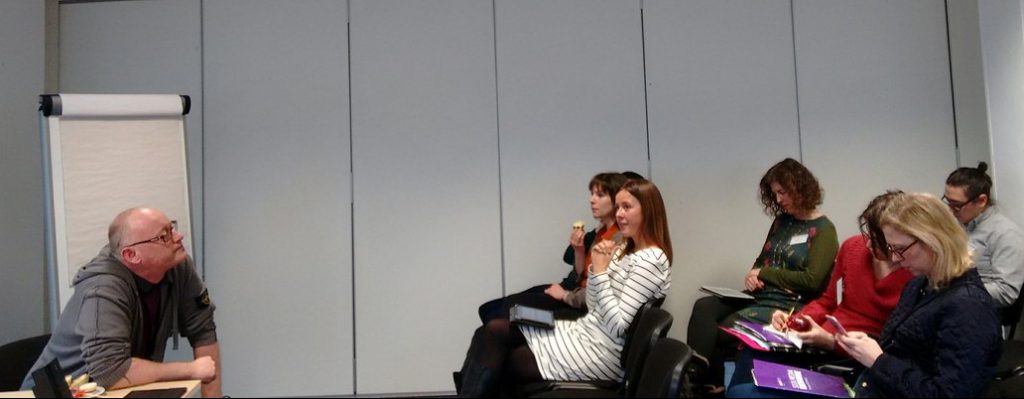There are some names and phrases in the charity world which, to me, just don’t feel right. ‘Stakeholders’ is the obvious one, but words that collectively describe people supported by charities such as ‘beneficiaries’, ‘patients’ and ‘clients’ also wrinkle my nose. Which is why I’m so taken with the concept of Expert Citizens and why I was right there in the front row for Darren Murinas’ talk at the Social Media Exchange.
Alongside other roles, Darren advises a project in Stoke which supports people with complex needs; given what he has experienced in his 40-something years, it’s small wonder they involve him in their work. Darren has a past that in polite circles might be described as ‘colourful’. I was struck by how refreshingly open he is about both the things he has been through (surviving abuse, growing up in care) and the things he has done (alcohol, drugs, time in prison). He speaks of the labels that used to be attached to him as though reading a shopping list: junkie; stupid; criminal; problem child; nutter. His list concludes with more recent additions including director and charity trustee.
The label I think Darren can be most proud of is that of Expert Citizen.
Expert Citizens describes people who have ‘lived experience’; experts by virtue of the things they have faced, and overcome, in their lives. This is such a simple concept but one which is powerful and ultimately, life-changing. With an authentic voice, Expert Citizens can talk about a huge range of issues affecting society today, in ways that organisations simply can’t. They are the artists who can paint the picture of deprivation or abuse, the chefs who give us a taste of a life far removed from our own, the singers who uplift us with their songs of hope. And they can do this because they were there. They lived it.
That they share their stories is crucial for charities in demonstrating their impact, but it’s also important for the individual for a range of reasons, not least of all catharsis; I certainly got a sense that Darren had made peace with some of what had happened to him. The importance of the role of an Expert Citizen, and why we should define them as experts, struck me again later in the day when poet, care leaver and campaigner Lemn Sissay took to the stage to give his keynote speech:
“You’re not giving people a voice… they HAVE a voice. You’re listening”
We’re surrounded by noise. Noise, news and opinions. We hear a lot but do we really listen and understand? There are some voices in danger of being muffled or drowned out completely. To understand and create change we need to hear from people affected by local authority budget cuts, a childhood spent in care, reductions in mental health funding, the increase in food banks and the wealth of other issues affecting society today.
As charity PRs, fundraisers and communicators, our role isn’t to ‘give people a voice’. As I see it, our role is to make sure the widest possible audience gets to hear those voices, listens and understands; we must find opportunities and create platforms for Expert Citizens to keep talking and sharing their experiences. Darren has inspired me to do exactly that.
If you want to know more about Expert Citizens, why not follow Darren and his fellow experts on Twitter, or visit www.expertcitizens.org.uk
[Image courtesy of Lankelly Chase]
This blog was originally posted on Gemma’s blog here.

